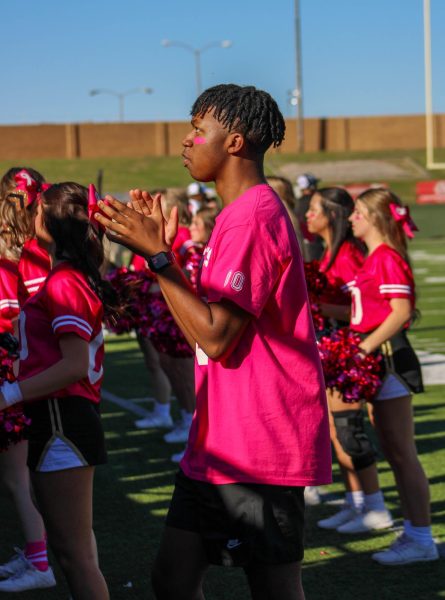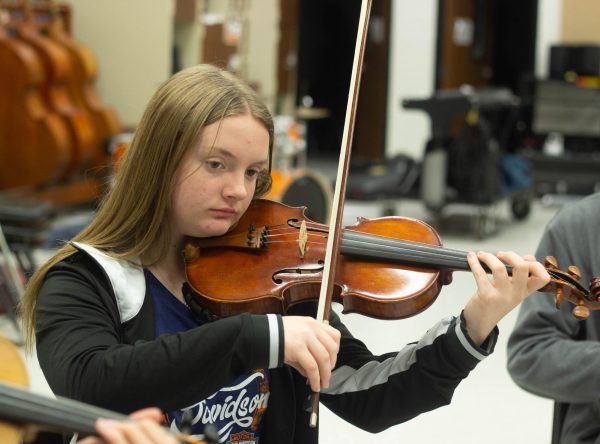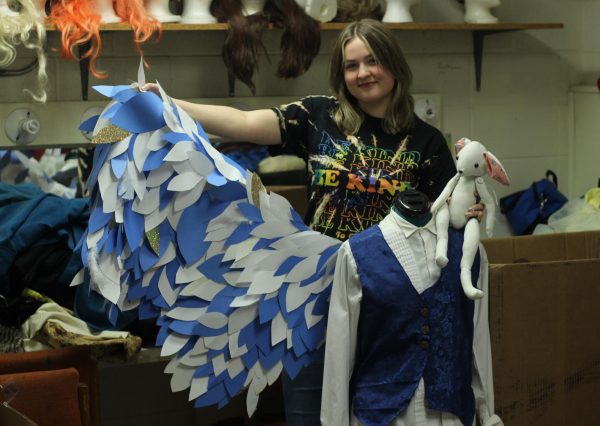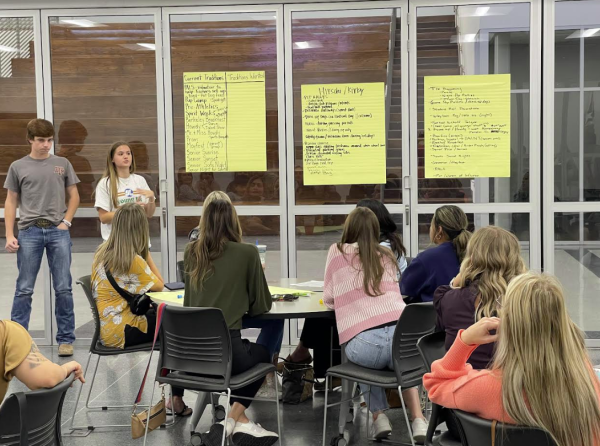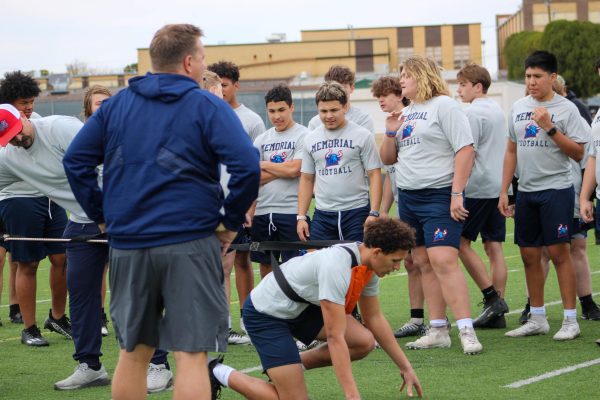A Harsh Reality
New show “You” brings awareness to relationship abuse

The Netflix thriller “You” is the latest binge-worthy show that leaves all it’s viewers shocked, disturbed, and wanting more. While many events in the television show may seem outrageous to some viewers, people who have been in abusive relationships can relate in several ways. Based on the novel by Caroline Kepnes, “You” follows bookstore manager Joe Goldberg (Penn Badgley) and aspiring author Guinevere Beck (Elizabeth Lail). Joe meets Beck when she comes into his bookstore, and he quickly becomes obsessed. He begins to stalk her and even goes so far as to kill people who might come between them. Oblivious to his dangerous side, Beck falls in love with Joe. This love ultimately leads to her demise. Senior Hannah Williams* had some similar experiences with a boyfriend her sophomore year. A relationship that was seemingly healthy when it began to turn toxic after about four months.
“Our biggest fight was when he choked me against the wall and hit me in the side of the leg as hard as he could, which brought me to the ground,” she said.
According to the CDC, strangers don’t pose the biggest threat to women, their boyfriends and husbands do. A Morbidity and Mortality Weekly Report states that “Over half of homicides of women for which circumstances were known were intimate partner violence-related, with the majority of women killed by their current or former intimate partner.”
The Morbidity and Mortality Weekly Report stated that murder is the fifth leading cause of death for women 18 to 44 years old, and the statistics are staggering. In 2015, 3,519 women were murdered, over half of which by their intimate partner. However, abuse isn’t always physical. Often it starts with psychological or emotional abuse, which can be hard to identify at times. Manipulation is one of the key points in an abusive relationship. In “You,” Joe is an expert manipulator. Even an audience member, seeing all the despicable things he does, still may end up rooting for him. He rationalizes all his wrongdoings in a way that makes it look like he was truly doing it for Beck’s own good. Abusers use manipulation to keep their girlfriends or wives in the relationship. Senior Amelia Smith* knows this feeling all too well. When Smith moved to Wichita Falls in eighth grade, she began dating a boy, and the relationship quickly became abusive. She was afraid to tell anyone what was going on because all of her friends were his friends as well. She felt that if she were to talk about the things he was doing, then nobody would believe her.
“Sometimes I would try to break up with him, and he would tell me that he was going to kill himself,” she said. “When you’re 13 years old, you don’t really know what to say to that, so you just take it back.”
Threatening suicide can be a manipulation tactic. Nobody wants someone’s blood on their hands, so it’s an easy way for abusers to pull someone back in when they’re trying to get away.
“You are never responsible for someone hurting themselves because that’s their decision,” Smith* said.
Another common aspect of an abusive relationship would be separating the abused from her friends and family. People outside the relationship may have an easier time identifying signs of abuse, as the abuser wants all the control. In “You,” When one of Beck’s friends becomes suspicious of Joe, he finds a way to take her out of the picture. In taking out Beck’s best friend, he is able to have her all to himself. Williams* found herself in this position with her ex-boyfriend.
“He would make me feel like garbage about going out with them, so I would just hang out with him instead,” she said. “I was scared and trained to do what he said.”
Although it was difficult, with he support of their friends and families, both Williams and Smith managed to end their relationships.
“Trust your instincts,” Williams* said. “If something doesn’t feel right, it isn’t. It’s ok to talk to someone about it. It gets better, I promise.”
*Names have been changed

